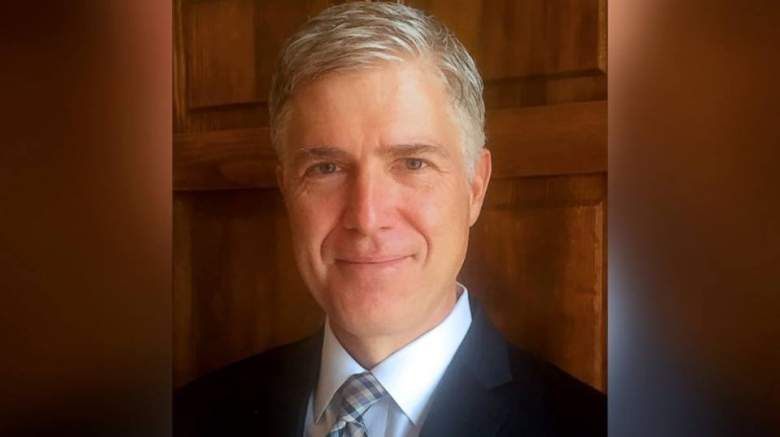
Neil Gorsuch. (Facebook)
President Donald Trump’s nominee for the U.S. Supreme Court is Denver appellate judge, Neil Gorsuch. Trump made the announcement in a live press conference on January 31.
How would Gorsuch rule on Trump’s controversial immigration ban, which some critics have dubbed a “Muslim ban,” were it to come before the court?
Trump, in announcing Gorsuch, said he wanted to pick someone who would interpret the Constitution as written. He had said previously that he wanted to choose someone in the mold of late Justice Antonin Scalia – and, researchers and experts have said, Gorsuch fits that bill. Gorsuch, as with Scalia, is an intellectual known as a conservative.
Of course, it’s impossible to know for sure how Gorsuch would side on the immigration ban. Gorsuch doesn’t have much of a record on immigration at all and, unlike the runner up, Thomas Hardiman, conservatives haven’t dug up anything in his past comments to give them pause. Hardiman’s immigration comments might have harmed his bid.
But there are some clues that can be gleaned from Gorsuch’s career and philosophy.
Here’s what you need to know:
1. Gorsuch Ruled on an Immigration Case but it Involved Separation of Powers Issues
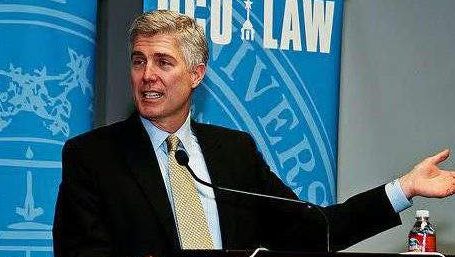
Neil Gorsuch (Twitter)
Gorsuch was involved in an immigration case for the 10th U.S. Circuit Court of Appeals in Gutierrez-Brizuela v. Loretta Lynch. However, his writing on the case is known for how he emphasized separation of power issues and concern about a stronger federal government.
According to Reuters, Gorsuch “took the opportunity of a complicated immigration case to write about the tension between separation of powers doctrine and the Supreme Court’s 1984 opinion in Chevron v. Natural Resources Defense Council, which directed courts defer to executive-branch agencies in the interpretation of ambiguous statutes.”
In the decision, Gorsuch expressed concern that federal agencies could help build federal power at the expense of the legislative and judicial branches.
“The founding fathers, Judge Gorsuch wrote, crafted a delicate distribution of power amongst the branches of government in order to safeguard personal rights,” reported Reuters, quoting him as saying, “A government of diffused powers, they knew, is a government less capable of invading the liberties of the people.”
2. People Believe That Gorsuch Would be a Justice in the Mold of Antonin Scalia
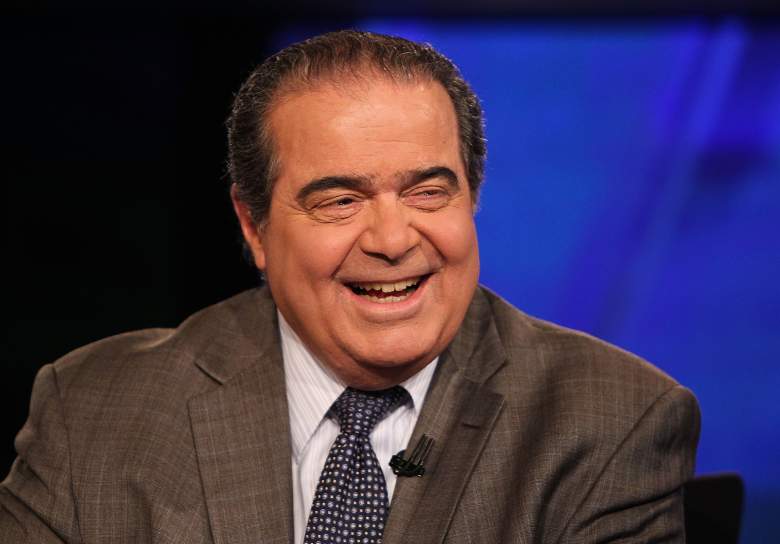
Supreme Court Justice Antonin Scalia had nine children and scores of grandchildren. (Getty)
A team of researchers came up with a model to predict which potential Supreme Court justice would be most like the firebrand Scalia, who was known for his intellectual ferocity – and his conservatism. In picking Gorsuch, Trump indicated that he wanted a justice to uphold the “rule of law,” and the president has said he wanted a justice like Scalia.
According to The Washington Post, the researchers who came up with the “Scalia index” comparison considered such things as whether the judge promotes “originalism”; how often the judge cites “Scalia’s non-judicial writings” in legal interpretation; and how often a judge writes separately, which Scalia often did.
They found that Gorsuch had the highest “Scalia like” score: 79.4%, even higher than contender William Pryor and much higher than Hardiman, whom the researchers deemed would be more like Chief Justice John Roberts, according to The Post.
Two buzzwords often used to describe Scalia – and Gorsuch – are the words “originalist” and “textualist.”
As The Washington Post explains them, “Like Scalia, Gorsuch is a proponent of originalism — meaning that judges should attempt to interpret the words of the Constitution as they were understood at the time they were written — and a textualist who considers only the words of the law being reviewed, not legislators’ intent or the consequences of the decision.”
These traits were apparent in the speech that Gorsuch gave on Scalia.
3. Lawsuits Are Seeking to Have the Courts Strike Down the Immigration Ban
Would a Justice Gorsuch even have a chance to rule on the immigration ban? It’s definitely possible.
Lawyers for the two Iraqi men who were detained for hours at JFK airport (and then released) immediately filed a writ of habeus corpus, seeking their release, reported The New York Times.
The Times reported that the men’s lawyers were initially blocked from meeting with them as one Customs and Border patrol agent informed them, “Call Mr. Trump” when they asked whom to talk to about getting access.
The lawyers filed the legal action in the middle of the night in federal court, according to The Washington Post.
The lawyers are also seeking to represent other affected refugees in a class action lawsuit, and they are contending that Trump’s executive order is unconstitutional, The Post reported.
The lawsuit was filed by a series of lawyers, including those working for The Jerome N. Frank Legal Services Organization, International Refugee Assistance Project, the National Immigration Law Center, American Civil Liberties Union Foundation and Kilpatrick Townsend & Stockton LLP.
The lawsuit cites the 5th Amendment to the U.S. Constitution, alleging that the detainees were not given due process rights as required under it. The suit contends the man were denied their due process rights to “apply for asylum” and that Trump’s executive order violates the equal protection clause within it
The Trump executive order temporarily banned immigration from six Muslim-Majority countries, and indefinitely banned it from a seventh (Syria). Trump has argued the bans are necessary to improve the vetting process and protect the country from radical Islamic terrorist. Protests ignited, especially as confusion initially reigned over whether the order banned green card holders from entering the country; the Trump administration eventually announced it did not.
The lawsuit alleges that Trump’s order singles out Muslims for disparate treatment based on their religion, and a federal judge (appointed by President Barack Obama) has already granted an emergency stay that banned the government from sending people back to their home countries who had already landed at American airports. However, the case could ultimately make its way to the nation’s highest court.
4. Gorsuch Has Ruled Against Government Intrusion Into Religious Freedom
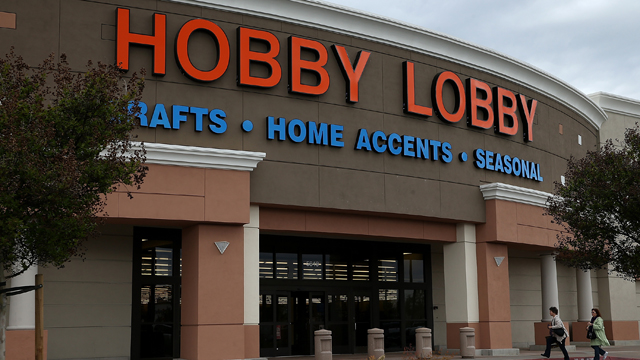
(Getty)
Opponents of the immigration executive order have attempted to cast it as discrimination against Muslims because of their religion.
Gorsuch does have a number of well-known rulings on religious freedom issues, but they dealt with Christian organizations seeking exemption from Obamacare rules about contraceptives. In those cases, such as the famous Hobby Lobby case, Gorsuch has generally taken the side of the faithful in arguing that government should not be able to force them to violate their religious beliefs.
Gorsuch also wrote a book arguing against assisted-suicide laws.
According to Fox News, Gorsuch “is a proponent of small government. He is skeptical of doling out authority to bureaucratic agencies and allowing them to interpret the law.”
5. Some Conservatives Were Critical of the Other Front Runner, Thomas Hardiman, on Immigration
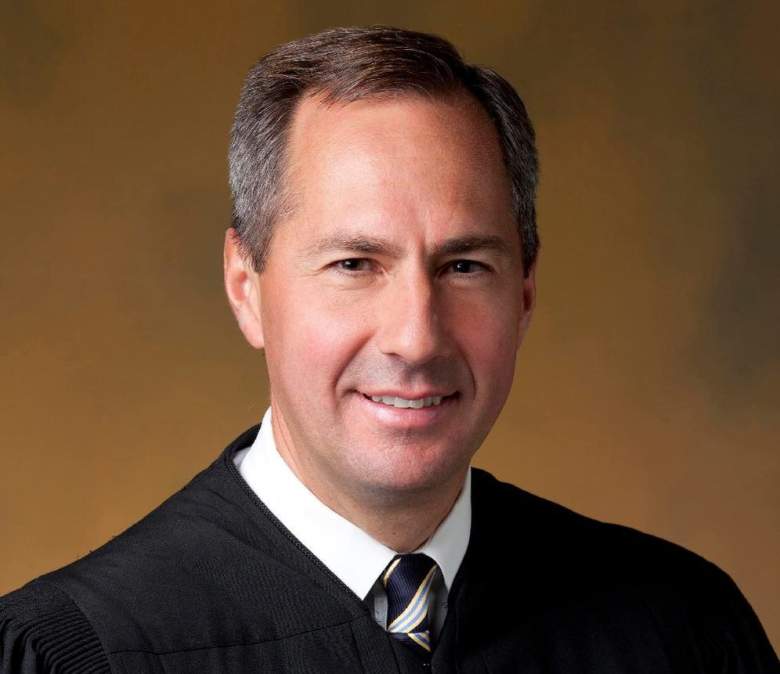
Thomas Hardiman
Down to the end, it was reported that appeals court Judge Thomas Hardiman was in the final two for the Supreme Court pick.
However, some prominent conservatives – including provocateur Ann Coulter – launched a last minute wave of criticism against Hardiman over immigration. Mostly, they focused on comments Hardiman made in his appeals court confirmation hearing about working at a legal aid clinic.
“My time spent at Ayuda, a legal aid clinic here in Washington, was some of the most valuable time that I spent as a law student and as a lawyer,” Hardiman said, according to Hot Air, a conservative website. “I was privileged to study in Mexico and became fluent in Spanish and have always been committed to pro bono work, so I volunteered at Ayuda, in the office, on a regular basis, and I did everything from fingerprinting and interviewing persons of Hispanic origin who entered the country without inspection and who were seeking work authorization permits.”
He helped get an immigrant from El Salvador asylum, Hot Air added. Conservative illegal immigration critics did not find anything in Gorsuch’s past to give them great concern on the topic.